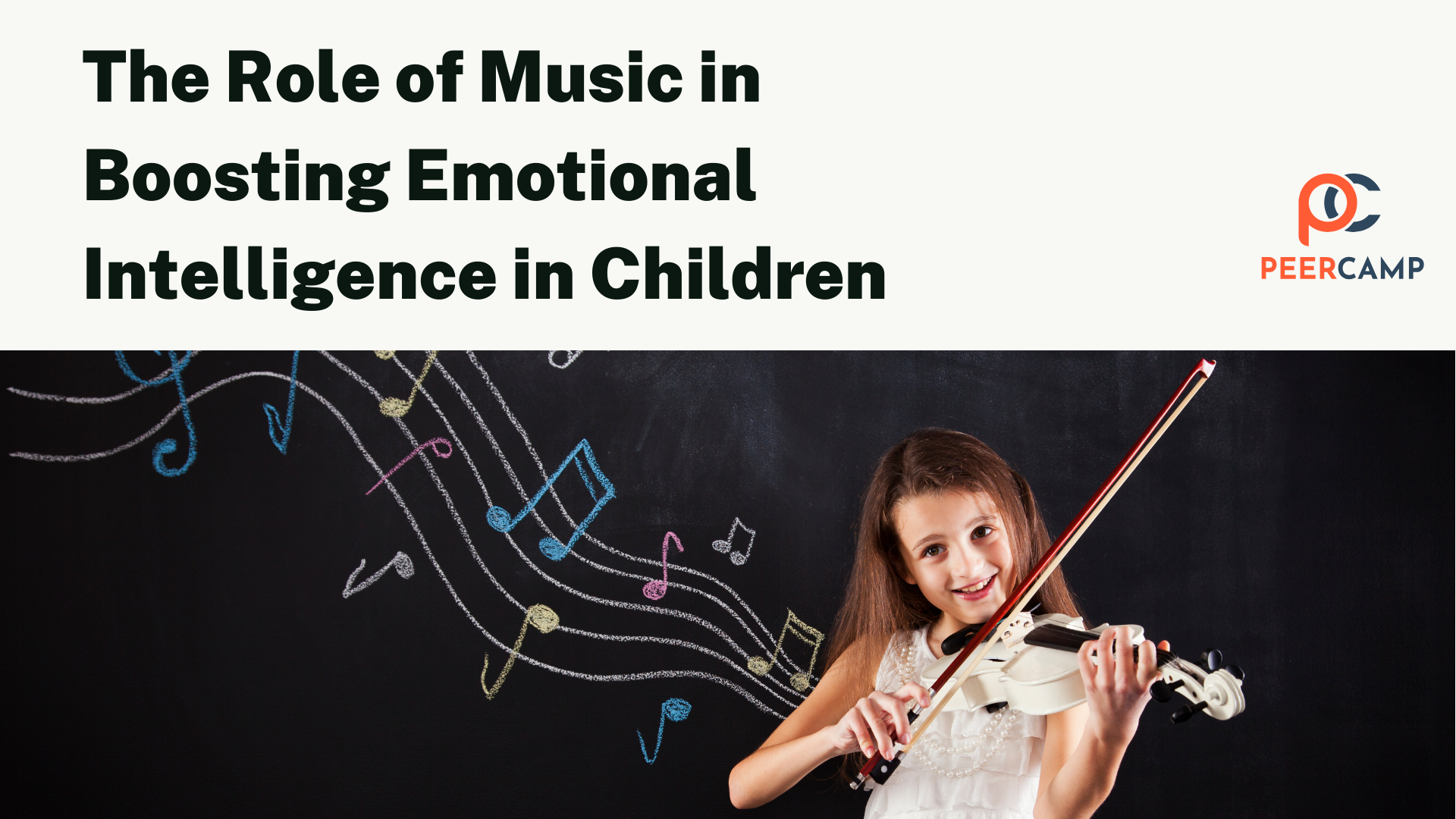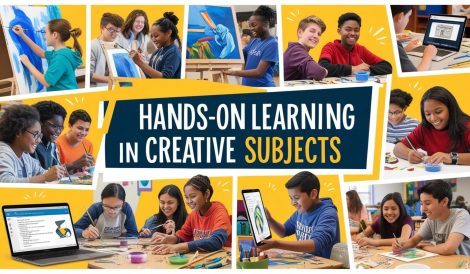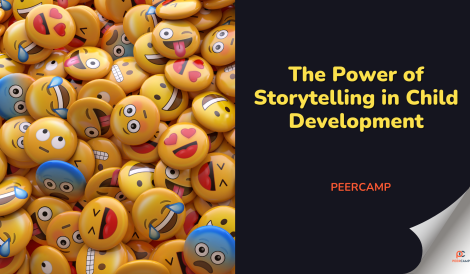Music has always been a universal language, transcending cultural and linguistic barriers to connect individuals on a deeply emotional level. Over time, researchers and educators have begun to recognize its incredible impact on developing key life skills, particularly in children. One of the most profound benefits of music is its ability to nurture emotional intelligence (EQ). Emotional intelligence is a vital skill that allows children to identify, understand, and regulate their emotions while also empathizing with others. It lays the foundation for strong interpersonal relationships, resilience, and mental well-being.
In today’s digital world, the availability of online music classes has broadened access to musical education, promoting global music learning and fostering EQ in children across diverse backgrounds. Whether it’s learning to play the piano, strumming a guitar, or exploring world music, children reap immense developmental benefits. Let’s explore how music can play a pivotal role in cultivating emotional intelligence in young minds.
Understanding Emotional Intelligence and Its Importance in Children
Emotional intelligence is the ability to understand and manage one’s emotions while also recognizing and influencing the emotions of others. For children, developing EQ can significantly enhance their social and academic lives. Unlike IQ, which primarily measures cognitive abilities, EQ focuses on soft skills like empathy, self-awareness, and emotional regulation.
Why is EQ so important in childhood? Studies show that children with high emotional intelligence are better equipped to handle stress, communicate effectively, and build healthy relationships. These skills not only improve their academic performance but also set them up for long-term personal and professional success. Fortunately, music offers an engaging and accessible pathway to developing these essential skills.
How Music Boosts Emotional Intelligence in Children
Music is a powerful tool for emotional development because it stimulates both the emotional and cognitive centers of the brain. When children engage with music—whether through listening, singing, or playing an instrument—they naturally experience a range of emotions, from joy and excitement to calmness and reflection. Let’s take a closer look at the specific ways music enhances EQ:
- Encouraging Emotional Expression
Music provides children with a safe outlet to express their emotions. Whether they’re feeling happy, sad, or anxious, music allows them to articulate their feelings without relying solely on words. For instance, playing an upbeat tune can help children express joy, while a slow, gentle melody might help them process sadness. - Enhancing Empathy
Music has a unique ability to evoke empathy by helping children understand the emotions conveyed in a song. For example, a child listening to a soulful ballad might develop a sense of compassion for the feelings expressed by the singer. This exposure broadens their emotional awareness and helps them connect with others on a deeper level. - Improving Emotional Regulation
Children often struggle with regulating their emotions, but music can serve as a calming force. Research has shown that slow, rhythmic music can reduce stress and anxiety by lowering heart rates and promoting relaxation. Over time, children can learn to use music as a self-regulation tool to manage their emotions in challenging situations. - Building Social Skills through Group Music Activities
Group music lessons or choir practice teach children the importance of collaboration, patience, and active listening. These activities require children to work together, harmonize, and respond to one another’s cues, all of which enhance their social and interpersonal skills. - Fostering Self-Awareness
Playing a musical instrument or singing encourages children to focus on their internal states. They must pay attention to their breathing, posture, and emotions, which helps build self-awareness—a key component of emotional intelligence.
The Role of Online Music Classes in Enhancing EQ
In the digital age, online music classes have revolutionized how children access musical education. Platforms like PeerCamp offer personalized, interactive lessons that cater to a global audience. These virtual classes not only make learning convenient but also introduce children to diverse musical genres and cultural traditions, fostering global music learning.
Online music classes are uniquely suited to nurturing EQ because they provide one-on-one attention and flexibility. Here’s how they contribute to emotional growth:
- Personalized Learning Experience: Unlike traditional classroom settings, online music classes can be tailored to a child’s individual needs and emotional state, making it easier for them to connect with the material.
- Exposure to Global Music: Learning about different musical traditions from around the world helps children appreciate cultural diversity, broadening their perspective and building cross-cultural empathy.
- Safe Space for Emotional Expression: Virtual lessons offer a comfortable environment for children to explore and express their emotions without fear of judgment.
The Science Behind Music and Emotional Development
Numerous studies have confirmed the link between music and emotional development in children. According to research published in the journal Frontiers in Psychology, engaging with music activates the brain’s limbic system, which is responsible for processing emotions. This activation helps children better understand and manage their feelings.
Additionally, music therapy has been widely used to support children with emotional and behavioral challenges, demonstrating its effectiveness in improving emotional regulation, communication skills, and self-esteem. The rhythmic and repetitive nature of music stimulates neural connections, enhancing brain plasticity and emotional resilience.
Incorporating Music into a Child’s Daily Routine
Parents and educators can incorporate music into children’s lives in simple yet meaningful ways to foster emotional intelligence. Here are some practical tips:
- Start with Lullabies and Nursery Rhymes: Singing lullabies to young children not only soothes them but also introduces them to basic emotional concepts.
- Create a Family Playlist: Curate a playlist with songs that evoke a range of emotions. Encourage children to share how each song makes them feel.
- Enroll in Online Music Classes: Platforms like Peercamp provide structured learning opportunities, allowing children to explore instruments and global music styles.
- Encourage Instrument Practice: Learning to play an instrument builds discipline and enhances emotional regulation through focused practice.
- Use Music for Relaxation: Teach children to use calming music as a relaxation tool during stressful moments.
Why Global Music Learning Matters for Emotional Intelligence
Global music learning introduces children to a rich tapestry of sounds, rhythms, and stories from different cultures. This exposure fosters an appreciation for diversity and helps children develop a global perspective. By understanding the cultural contexts of different musical styles, children enhance their capacity for empathy and open-mindedness—essential components of emotional intelligence.
Moreover, global music often tells stories of human experiences such as love, loss, and hope, offering children insights into universal emotions. These lessons help children build a stronger emotional vocabulary and deepen their understanding of the world around them.
The role of music in boosting emotional intelligence in children is undeniable. From encouraging emotional expression to fostering empathy and self-awareness, music provides a powerful avenue for emotional growth. Online music classes, such as those offered by Peercamp, make it easier than ever for children to access quality musical education and develop essential EQ skills.
As parents and educators, it’s crucial to recognize the value of music not just as a form of entertainment but as a vital tool for emotional and social development. By incorporating music into children’s daily lives and exploring global music learning, we can help shape emotionally intelligent, empathetic, and resilient individuals




